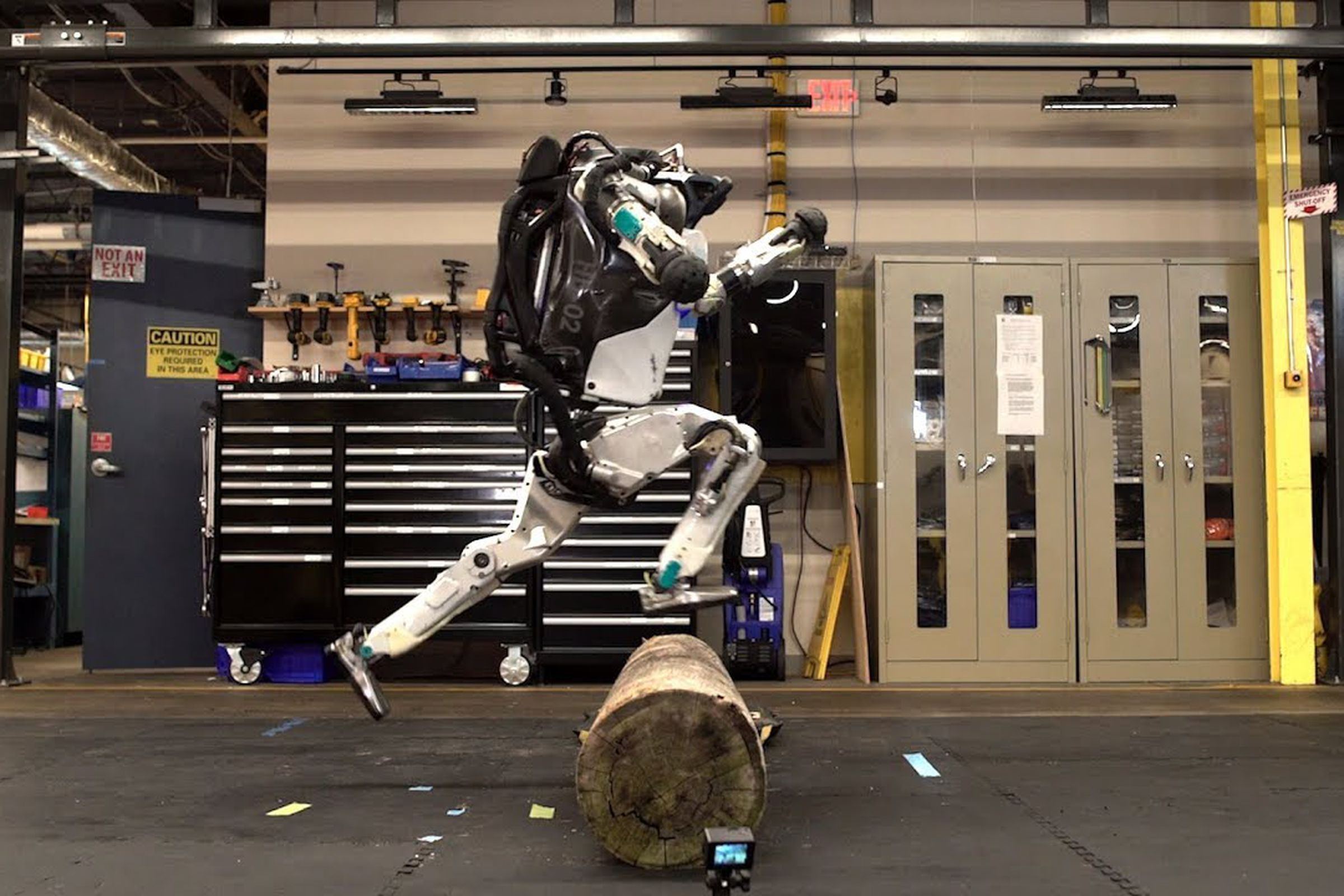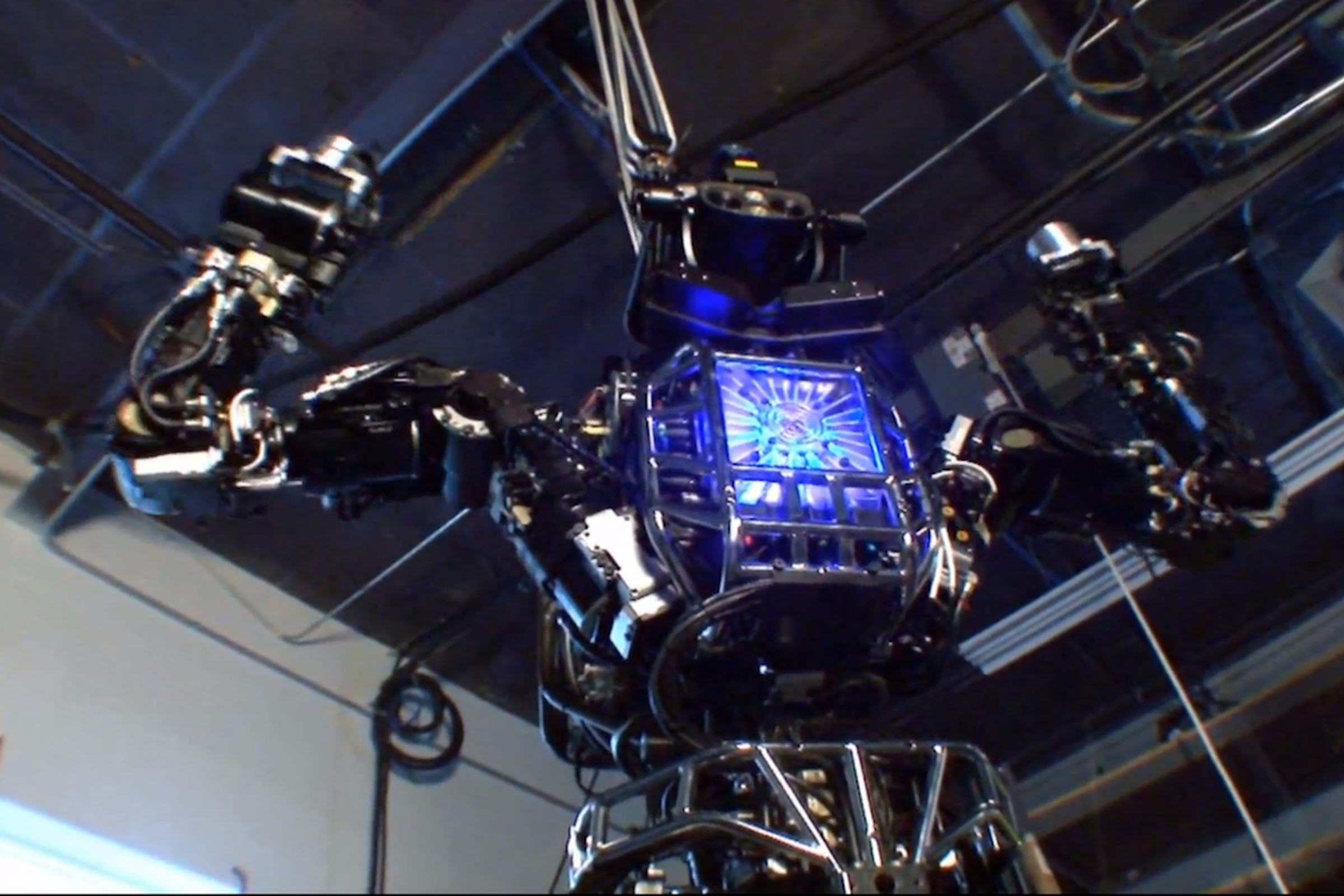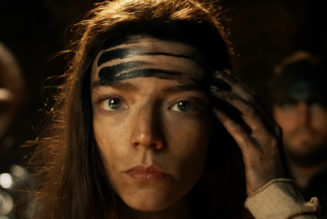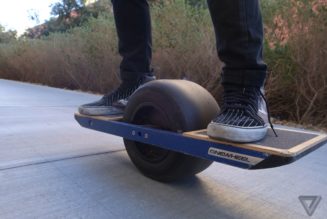After 11 years, Boston Dynamics is saying goodbye to Atlas, the humanoid robot best known for its (somewhat unsettling) dance sequences and impressive backflips. In a video posted on YouTube, the robotics company says it’s time for its hydraulic bot to “kick back and relax” in retirement.
Boston Dynamics created Atlas in 2013 as part of a contest for the Department of Defense. In its very first iteration, Atlas stood six feet, two inches tall and weighed 330 pounds. As Boston Dynamics continued to tweak Atlas’ design over the years, we’ve seen the robot hop, jump, and twirl across a mat and even toss around tool bags.
It’s not too surprising that Boston Dynamics has chosen to retire the bipedal bot, given that it doesn’t sell Atlas to commercial customers like it does with its dog-like robot Spot and warehouse worker Stretch. But hey, maybe we’ll see Atlas make an appearance in another group dance video down the road. Here’s a recap of Atlas’ history at Boston Dynamics.
-
Boston Dynamic’s Atlas robot has picked up some new tricks.
By which I mean it’s literally learning to pick up objects and slide them onto shelves, like the 30-pound car struts seen in the video below.
Completing these complex maneuvers are essential if Atlas, and the bipedal robots being trialed by Tesla, BMW, and Amazon have any hope of besting good, old-fashioned human power.
-
Is Boston Dynamics slowly preparing to put its bipedal robots to work?
In a glossy new video, the company has shown off its prototype Atlas robot tossing planks and tool bags around in a fake construction site. In a second, behind-the-scenes video, Boston Dynamics’ team lead on Atlas, Scott Kuindersma, explained that the video is “meant to communicate an expansion of the research we’re doing on Atlas.” As ever, it’s important to note that these videos are rigorously planned and structured, with falls and mistakes edited out. But, as Kuindersma notes, it’s still a change of pace for Atlas.
-
Boston Dynamics has published a pair of new videos showcasing its bipedal Atlas robot. The first is typical Boston Dynamics flash, with two Atlas units demonstrating an extremely impressive gymnastics routine. They flip, they vault, they nearly fall over but not quite — it’s brilliant. The second video, though, offers an unusually transparent assessment of Atlas’ capabilities, as the company’s engineers explain what goes into creating these routines.
As Boston Dynamics has said before, Atlas is essentially a research project: a cutting-edge machine that helps the company’s engineers work out better control and perception systems. “At a practical level it’s a platform for us to do R&D on,” says Benjamin Stephens, control lead for Atlas, in the video. That research includes these gymnastic and parkour routines, with which the company regularly delights (and unnerves) the internet.
-
Boston Dynamics’ Atlas and Spot robots can do a lot of things: sprinting, gymnastic routines, parkour, backflips, opening doors to let in an army of their friends, washing dishes, and (poorly) getting actual jobs. But the company’s latest video adds another impressive trick to our future robotic overlords’ repertoire: busting sick dance moves.
The video sees Boston Dynamics’ entire lineup of robots — the humanoid Atlas, the dog-shaped Spot, and the box-juggling Handle — all come together in a bopping, coordinated dance routine set to The Contours’ “Do You Love Me.”
-
Alongside the news that Boston Dynamics is going to let its robot dog, Spot, out of its laboratory for the first time, the company has released a new video of Atlas, its spectacular bipedal robot that’s previously been seen doing everything from parkour to backflips. In this latest video, Atlas does a small gymnastics routine, consisting of a number of somersaults, a short handstand, a 360-degree spinning jump, and even a balletic split leap.
What’s most impressive is seeing Atlas tie all these moves together into one pretty cohesive routine. In the video’s description, Boston Dynamics says that it’s using a “model predictive controller” to blend from one maneuver to the next. Presumably each somersault gives the robot a fair amount of forward momentum, but at no point in the video does it seem to lose its balance as a result. Amazingly, Atlas is able to roll gracefully along its back without any of its machinery getting squashed or tangled.
-
Not many robotics companies can boast legions of fans online, but not many robotics companies make robots quite like Boston Dynamics.
Each time the firm shares new footage of its machines, they cause a sensation. Whether it’s a pack of robot dogs towing a truck or a human-like bot leaping nimbly up a set of boxes, Boston Dynamics’ bots are uniquely thrilling.
-


Everyone’s favorite future robot overlords are back with a new trick: parkour. SoftBank-owned Boston Dynamics released a short video today that shows its bipedal humanoid Atlas robot breezing over a log before showing some serious ups as it hops to the top of a set of staggered boxes.
It’s another feather in the cap of the small Massachusetts outfit, which has regularly teased new robots with new capabilities for years now despite having been abandoned by Google. While it’s still not totally clear whether Boston Dynamics will find paying customers for these robots, just look at the list of Things Boston Dynamics’ Robots Can Do:
Boston Dynamics’ robots look more natural and more amazing with each video, and today the company posted two more clips to its YouTube channel showing the latest progress of its Atlas and SpotMini robots.
The clips don’t reveal much we haven’t seen before, but they both show how naturally these robots are able to move around. In one video, Atlas, the humanoid robot, goes for a jog in a grassy yard that appears to be sloped here and there.
Something that often bothers me about sci-fi is the loner inventor trope. A guy in a garage builds a robot, or AI, or frequently both that are somehow decades beyond the technology of his day, and all the wild implications of his vast technological leap are the fuel for the next two and a half hours of popcorn entertainment.
But the latest video from Boston Dynamics is the closest equivalent I’ve ever witnessed IRL. Sure, it’s the achievement of an entire company, and they’re doing it on YouTube for everyone to see, not in a basement. But a backflip?
It’s been a while since we’ve seen any updates to the Atlas robot after Alphabet sold Boston Dynamics to SoftBank in June. After unveiling a teaser of its SpotMini robot just a few days ago, the company is now back with a new video of Atlas just casually performing gymnastics moves like it’s Tokyo 2020. Most of the video highlights the Atlas’ ability to hop up straight and stabilize itself on a platform, and jump while turning 180 degrees. Its movements are more fluid than ever, and Atlas appears to maintain great form.
Nothing to gawk at; my eight-year-old can do that, you say? Hold my grease. The most impressive portion of the demonstration is its last move. Atlas is seen turning around and backflipping off a block, all while masterfully sticking its landing. It even does a little arm raise to simultaneously gain balance and celebrate its success.
Boston Dynamics, the famed manufacturer of the robots that will one day ascend past human intelligence and install themselves as our metallic overlords, released the latest version of its bipedal Atlas robot earlier this year. And now, the Florida Institute for Human & Machine Cognition (IMHC) has upgraded Atlas even further, with a new control algorithm that solves one of the Atlas’ biggest issues: walking on uneven terrain.
The new algorithm allows the robot to maintain its balance as it walks over the scattered cinder blocks by dynamically testing the terrain and adjusting its foot position and weight distribution to avoid falling, just like real, live humans do.
Boston Dynamics has a long history of producing terrifying robots, and its scientists have a long history of kicking, taunting, and teasing them. That ill-advised practice continues in the company’s latest video, showcasing its next generation Atlas droid, a bipedal bot capable of striding through snow, picking up boxes, opening doors, and — by the looks of things — one day murdering humans.
Atlas’ gait is a bit awkward — it stumbles as it walks around the woods near Boston Dynamics’ offices — but the machine is relentless, righting itself before it takes a tumble. If it does get knocked over, as it does when one of the company’s scientists plants a stick in its back during the video, then it can get back up by itself. The robot’s even capable of tracking boxes, bending down to collect them when they’re on the floor, and repeating the process when the boxes are smacked out of its hands by its overlords. Let’s hope it’s not capable of tracking the faces of people that have wronged it, or else they’ll be first against the wall during the robot uprising.
A humanoid robot that takes out the trash and cleans our floors is a far more pleasant view of the future than an AI army of automatons bent on enslaving mankind. Unfortunately, we still haven’t figured out how to make robots move around the real world with the precision of a human, let alone perform household chores. Florida’s Institute for Human & Machine Cognition (IHMC) is getting closer, however, with its in-house Atlas robot.
The team released a video this week of its Atlas, a bipedal humanoid bot originally developed by Google-owned Boston Mechanics with government funding back in 2013, performing a set of activities that require “whole-body coordinated motions.” Those activities include vacuuming a carpet and placing trash in a receptacle. The experiments, conducted as part of a routine code test, are designed to help expand the robot’s capabilities, albeit with a human operator helping it along the way.
In a potentially unsettling nod to Ayn Rand, the robot is nicknamed Atlas Unplugged, and it features several new upgrades (none of which is an Objectivist mindset). Unlike the original Atlas, the Atlas Unplugged runs entirely on battery and no longer requires a safety line to stand upright. The humanoid has a shiny new distribution panel, new arms and forearms with a wider range of motion, and a new, quieter pressure pump so users can operate Atlas without hearing protection. Only the original lower legs and feet are still in use. Here’s a GIF of the original Atlas for reference:
When everyone was wondering what Google had in mind for all its new robotics companies, “teaching robots martial arts” was probably one of the more paranoid guesses. But here we are with a new video from Boston Dynamics, somehow both whimsical and unsettling, in which their robot Atlas balances on one leg atop a stack of cinderblocks, re-enacting that scene from The Karate Kid.
Watch it for yourself, but note, not only is it the stuff of nightmares, it’s accompanied by a shrill alarm, so you should mute your computer first.


It’s not quite Terminator, but it’s not that far off either: Check out Atlas, a new, 6-foot, 2-inch-tall humanoid robot designed for a contest being held by US Defense Department. The 290-pounds machine is being called “one of the most advanced humanoid robots ever built,” in no small part due to its 28 different hydraulic joints and freakishly good balance. Unveiled publicly for the first time earlier this week, it’s the latest robot from Boston Dynamics, the company behind such internet robotic sensations as Petman (a robotic man) and AlphaDog (a robotic dog), both designed for the US Department of Defense’s Advanced Research Projects Agency (DARPA). But unlike those previous robots, which were restricted to military and company usage, the keys to Atlas will be turned over to a few lucky civilians, so that they can program and pilot it using their own software.
That’s because Atlas is one of several robots competing in DARPA’s Virtual Robotics Challenge, a public contest with a $2 million grand prize that DARPA launched in October last year. The contest invited researchers from universities and companies across the county to design and build the best humanoid robotic systems they could, for the purpose of diaster response (think the Fukushima nuclear meltdown in the wake of the 2011 Japanese tsunami). DARPA announced today that it has picked six teams from around the country, including ones fielded by NASA’s Jet Propulsion Laboratory and the acclaimed robotics school Carnegie Mellon University, to advance onto the first series of physical trials scheduled for this coming December in Miami (see the robots in the video below).

![HHW Gaming: “Everything Is Game” In ‘NBA 2K21’s New Gameplay Trailer [Video]](https://www.wazupnaija.com/wp-content/uploads/2020/08/hhw-gaming-everything-is-game-in-nba-2k21s-new-gameplay-trailer-video-327x219.png)







